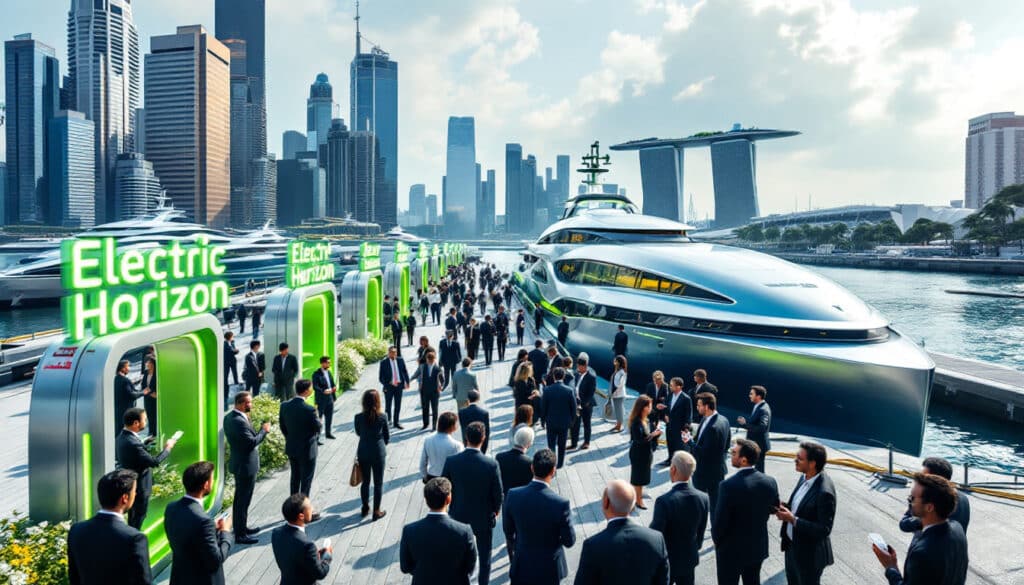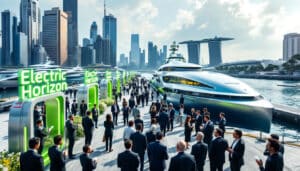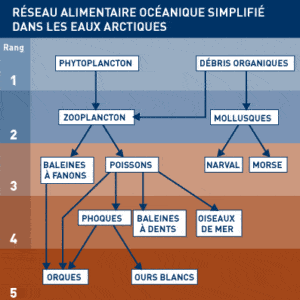Welcome to our platform. We use cookies and data to ensure the optimal functioning of our Google services. This usage allows us to monitor outages and protect against spam, fraud, and abuse.
We analyze audience engagement as well as site statistics to better understand the use of our services and improve their quality. By choosing “Accept All,” you permit us to develop and enhance new services, measure the effectiveness of ads, and display personalized content based on your preferences. Additionally, personalized ads may be shown based on your past activity on this browser, such as your previous searches with Google. If you choose “Reject All,” we will not use cookies for these additional purposes. Non-personalized content is influenced by factors such as the content you are currently viewing, your activity during the active search session, and your location. For an experience tailored to your age, we also adjust the display of content when relevant. Select “More Options” to access additional information, including details on managing your privacy settings.

Table of Contents
Toggleyinson greentech and wilhelmsen ships service open a charging station for electric ships in singapore
The city-state of Singapore asserts itself once again as a major hub for maritime innovation with the inauguration of a charging station for electric ships by Yinson Greentech and Wilhelmsen Ships Service. This initiative marks a crucial step in the transition to more sustainable energy solutions in the maritime industry, thus addressing current environmental challenges.
what environmental issues are addressed by electric ships
The maritime sector is one of the largest emitters of greenhouse gases, significantly contributing to global warming. The implementation of electric ships offers a promising solution to reduce these emissions. By adopting electric technologies, ships can decrease their carbon footprint and limit air pollution. Furthermore, these ships reduce underwater noise, which is beneficial for marine wildlife.
Moreover, electric ships promote better energy efficiency. Unlike traditional engines, electric motors are more efficient and require less maintenance, resulting in lower operational costs in the long term. This transition to the electrification of ships is part of a broader approach to sustainability and environmental responsibility adopted by many companies in the sector.
the role of yinson greentech and wilhelmsen ships service in green innovation
Yinson Greentech and Wilhelmsen Ships Service are key players in the field of sustainable maritime innovation. Yinson Greentech, specialized in marine energy solutions, brings its expertise in charging technologies and energy management. On its part, Wilhelmsen Ships Service, a global leader in maritime services, provides a robust infrastructure and a global network to support this initiative.
By collaborating, these two companies combine their strengths to develop a reliable and effective charging infrastructure tailored to the specific needs of electric ships. This collaboration is an example of a strategic partnership aimed at accelerating the energy transition in the maritime sector. The commitment of Yinson Greentech and Wilhelmsen Ships Service illustrates their willingness to actively contribute to creating a greener future for the marine industry.
what are the features of the new charging station
The new charging station located in Singapore is equipped with the latest energy management technologies. It can accommodate several electric ships simultaneously, allowing for quick and efficient charging. The station is equipped with advanced monitoring systems, ensuring optimal and secure operation of charging processes.
In addition, this station integrates energy storage solutions, which optimally manage variations in energy demand. This flexibility is essential to meet the fluctuating needs of ships in terms of charging. Furthermore, the station is designed to be scalable, able to adapt to future technological advancements and the growing demands of the sector.
what economic impact does this initiative generate
The opening of this charging station for electric ships in Singapore has positive economic repercussions. It creates new business opportunities and strengthens Singapore’s position as a leader in sustainable maritime technologies. Local companies benefit from this initiative by accessing modern infrastructure and participating in innovative projects.
Moreover, this charging station stimulates employment in the green technology sector and the maintenance of electrical infrastructures. Investments in such infrastructures also generate long-term economic returns by reducing operational costs for ships and decreasing reliance on costly and volatile fossil fuels.
how does this initiative fit into the regional and global context
Regionally, the initiative of Yinson Greentech and Wilhelmsen Ships Service joins other projects aimed at promoting more sustainable maritime transport. For example, Singapore and India are considering a green and digital maritime corridor, demonstrating the commitment of Asian countries in this direction. These green maritime corridors facilitate trade while minimizing environmental impact through the use of clean technologies.
Globally, this initiative aligns with the objectives of the Paris Agreement on climate and other international commitments to reduce carbon emissions. By integrating charging solutions for electric ships, Singapore positions itself as a model for other ports and nations wishing to adopt more ecological maritime practices.
the challenges and future perspectives of maritime electrification
Despite significant advancements, the electrification of the maritime sector still encounters several challenges. One of the main obstacles is the high initial cost of charging infrastructure and electric ships. However, over time and with ongoing investments, these costs are expected to decrease, making electric solutions more accessible.
Another challenge is the limited range of electric ships compared to traditional diesel-powered ships. Developers are, however, working on more efficient battery technologies and energy management systems. Additionally, initiatives like Hillcrest and Ocean Batteries strengthening their partnership show that innovative solutions are being developed to overcome these challenges.
aquatic innovation and its impact on the environment
Innovation in the aquatic domain profoundly transforms our relationship with water and the environment. Advanced technologies such as electric ships, marine energy storage solutions, and smart resource management systems contribute to a more responsible and sustainable use of the oceans. For example, how aquatic innovation is transforming our relationship with water and the environment?
These innovations not only help reduce the environmental impact of maritime activities but also improve the management of water resources and protect marine ecosystems. By integrating green technologies, the maritime industry can better meet sustainability requirements while continuing its crucial role in global trade.
collaborations and strategic partnerships in the green maritime sector
Collaborations between companies are essential to accelerate the transition to more sustainable maritime practices. Partnerships like the one between Yinson Greentech and Wilhelmsen Ships Service are crucial for the development and implementation of innovative solutions. Such alliances enable the pooling of resources, knowledge, and technologies, thus facilitating the creation of robust and efficient infrastructures.
Other partnerships, such as Regent fighting for approval from the US Coast Guard for its fully electric seagliders, illustrate the importance of cooperation between companies and regulatory bodies to overcome technical and administrative barriers. These collaborations are essential to ensure that innovations are not only technically viable but also compliant with safety and environmental standards.
the benefits for ports and local economies
The establishment of charging stations for electric ships brings significant benefits to ports and local economies. It attracts new businesses and investors, thereby strengthening the competitiveness of the involved ports. In Singapore, this initiative is already enhancing the city’s reputation as a leading maritime innovation hub.
Ports equipped with modern charging infrastructures can attract a fleet of electric ships, thus stimulating the local economy through job creation and the development of specialized skills. Furthermore, reducing greenhouse gas emissions contributes to improving air quality and public health, generating social and environmental benefits for local communities.
charging technologies and their evolution
Charging technologies for electric ships are constantly evolving, aiming to improve the efficiency, speed, and safety of operations. The station inaugurated by Yinson Greentech and Wilhelmsen Ships Service incorporates ultra-fast charging systems capable of recharging ship batteries in record time. This minimizes downtime and optimizes the use of vessels.
Moreover, advancements in energy management technologies allow for better integration of renewable energies, such as solar and wind energy, into the charging process. This further enhances the sustainability aspect of charging solutions and contributes to reducing carbon emissions. The continued evolution of these technologies promises to make electric ships even more competitive and attractive for the maritime sector.
the outcomes for other stakeholders in the maritime industry
The inauguration of this charging station in Singapore sends a strong signal to the entire maritime industry. It encourages other stakeholders to invest in green technologies and adopt more sustainable practices. Shipping companies thus see the opportunity to modernize their fleets and comply with increasingly stringent environmental regulations.
Furthermore, this initiative inspires other ports and companies to follow suit, creating a positive snowball effect for the entire industry. Similar projects in regions like Europe, North America, and Asia-Pacific testify to the relevance and necessity of such solutions for a sustainable maritime future.
the next steps for yinson greentech and wilhelmsen ships service
Yinson Greentech and Wilhelmsen Ships Service do not intend to stop there. The next steps include expanding their charging infrastructure to other strategic ports around the world. The goal is to create a global network of charging stations, thereby facilitating the massive adoption of electric ships and making maritime transport more environmentally friendly.
Moreover, these companies continue to invest in research and development to improve existing technologies and create new ones. The focus is on optimizing energy management systems, reducing production costs of charging infrastructure, and increasing the efficiency of batteries used in electric ships.
testimonials and feedback
Since the inauguration of the charging station, many maritime operators have expressed their enthusiasm and satisfaction. A leader from Yinson Greentech stated: “This initiative represents a significant step forward towards a cleaner and more sustainable maritime sector. We are proud to collaborate with Wilhelmsen Ships Service to provide innovative solutions to our clients.”
For its part, a representative from Wilhelmsen Ships Service added: “Our partnership with Yinson Greentech demonstrates our shared commitment to innovation and sustainability. This charging station is a concrete example of what we can achieve together to transform the maritime industry.”
the global perspectives of electric maritime mobility
Electric maritime mobility is poised to revolutionize maritime transport on a global scale. Countries and regions around the world are beginning to recognize the advantages of electric ships and invest in the necessary infrastructures to support them. This trend fits within a broader energy transition dynamic aimed at reducing the environmental impact of all forms of transport.
By continuing to develop innovative technologies and establishing strategic partnerships, Yinson Greentech and Wilhelmsen Ships Service are actively contributing to this transformation. Their success in Singapore could serve as a model for other similar initiatives, thus accelerating the global adoption of electric ships and fostering a greener and more sustainable maritime economy.
🔋Les étudiants de DAUST ont développé une station de recharge solaire révolutionnaire pour véhicules électriques, intégrant des technologies IoT avancées pour une gestion intelligente. https://t.co/CTOzo3HRae
— DAUST (@daustofficial) September 13, 2024
#Innovation #Durabilité #Technologie









